news
Just In: Tinubu ready to address high cost of food and imported food to crash prices nationwide, says Kyari
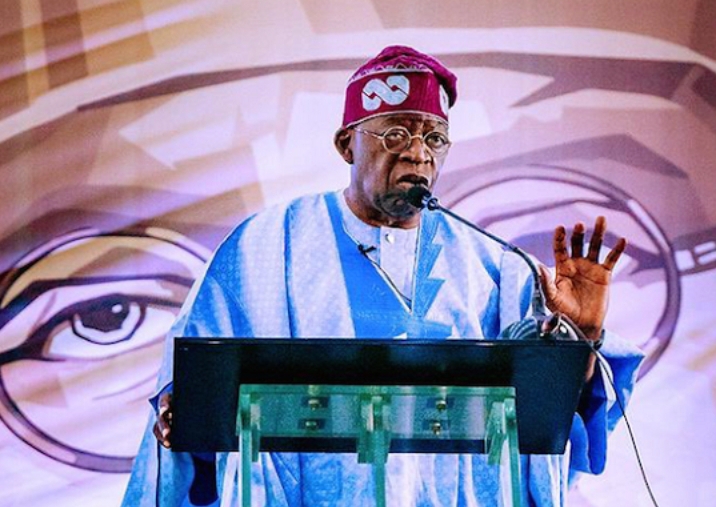
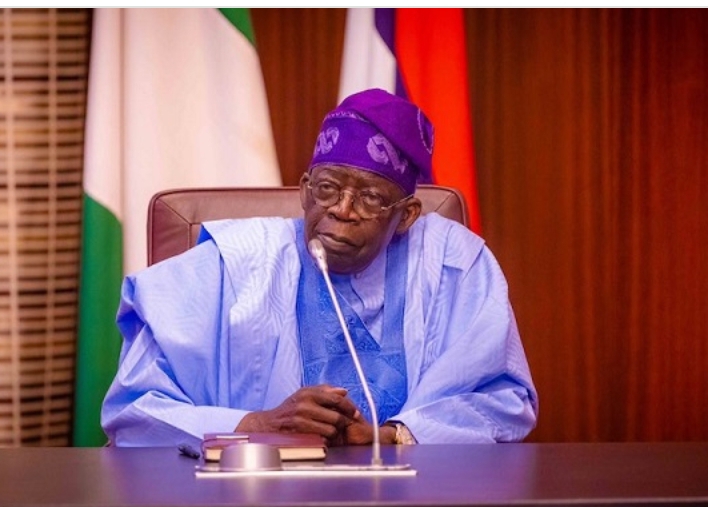 The Federal Government, on Wednesday, declared that with the strategic measures aimed at addressing the high food prices nationwide, prices of the items would crash in the next 180 days (January 2025).
The Federal Government, on Wednesday, declared that with the strategic measures aimed at addressing the high food prices nationwide, prices of the items would crash in the next 180 days (January 2025).
It said the measures which include the suspension of duties, tariffs, and taxes for the importation of certain food commodities through land and sea borders, as well as the importation of 500,000 metric tonnes of wheat and maize, would tackle the rise in food prices.
The Minister of Agriculture and Food Security, Abubakar Kyari, who disclosed this on his official X handle on Wednesday, explained that the imported food commodities would be subjected to a recommended retail price to maintain the required and acceptable standard.
This came as the All Farmers Association of Nigeria expressed optimism that the price of staple food in Nigeria would crash should the government implement the policies adequately, stressing that in-country food production had been insufficient.
Similarly, the organised private sector commended the Federal Government for the initiative, describing it as robust, comprehensive, and all-inclusive.
In his posts on X, the agriculture minister said, “Our administration has unveiled a series of strategic measures to address the high food prices currently affecting our nation. These measures will be implemented over the next 180 days: 150-day duty-free import window for food commodities; suspension of duties, tariffs, and taxes for the importation of certain food commodities through land and sea borders. These commodities include maize, husked brown rice, wheat, and cowpeas.
“Imported food commodities will be subjected to a recommended retail price. We understand concerns about the quality of these imports, especially regarding their genetic composition. The government assures that all standards will be maintained to ensure the safety and quality of food items for consumption.
“The Federal Government will import 250,000 metric tonnes of wheat and 250,000 metric tonnes of maize. These semi-processed commodities will be supplied to small-scale processors and millers across the country; engagement with relevant stakeholders to set a GMP ( good manufacturing practices) and purchase surplus food commodities to restock the National Strategic Food Reserve.”
Kyari said the government would ramp up production for the 2024/2025 farming cycle, adding that there would be continued support to smallholder farmers during the ongoing wet season farming through existing government initiatives.
He outlined other measures as “strengthening and accelerating dry season farming nationwide, embarking on aggressive agricultural mechanisation to reduce drudgery, lower production costs, and boost productivity, collaborating with sub-national entities to identify irrigable lands and increase land under cultivation.
The minister said the ministry would be “working closely with the Federal Ministry of Water Resources and Sanitation to rehabilitate and maintain irrigation facilities under river basin authorities across the federation. Developing strategic engagement for youths and women for immediate greenhouse cultivation of horticultural crops such as tomatoes and pepper to increase production volume, stabilise prices, and address food shortages.
“Fast-tracking ongoing engagements with the Nigerian military to rapidly cultivate arable lands under the Defence Farms Scheme and encouraging other para-military establishments to utilise available arable lands for cultivation.
On the Renewed Hope National Livestock Transformation Implementation Committee, the minister stated that the committee, inaugurated on Tuesday, would develop and implement policies prioritising livestock development in alignment with the National Livestock Transformation Plan, adding that a ministry of Livestock Development has been created.
Kyari said the government would enhance nutrition security by promoting the production of fortified food commodities, supporting the scale-up of the Home Garden Initiative by the Office of the First Lady of the Federal Republic of Nigeria.
“Over the next 14 days, in close collaboration with the Presidential Food Systems Coordinating Unit, and the Economic Management Team, we will convene with respective agencies to finalise the implementation frameworks. We will ensure that information is publicly available to facilitate the participation of all relevant stakeholders across the country.
“The success of these measures hinges on the cooperation and collaboration of all relevant MDAs (ministries, departments and agencies) and stakeholders. As our nation confronts this critical food security challenge, I reiterate President Bola Tinubu’s unwavering commitment to achieving food security and ensuring that no Nigerian goes to bed hungry. My team and I will work swiftly and diligently to actualise these crucial policies, ensuring food security for everyone in the immediate term while continuing our strategies for long-term interventions to address underlying causes and ensure sustainable and resilient food systems in Nigeria.
Commenting on the plans, the All Farmers Association of Nigeria lauded the initiative of the Federal Government on the lifting of taxes on food importation, as well as the importation of 500,000MT of wheat and maize.
The South-West Chairman of AFAN, Femi Oke, pointed out that food prices in Nigeria had continued to rise due to low production, stressing that it was the right thing to do by importing these items.
He stated, “It is a welcome development because the prices of food items have continued to rise and are now very high for most Nigerians. So we believe that with the introduction of a duty-free importation policy on the food items, the cost of these commodities will drop,” he stated.
When asked if the policy would not adversely impact local food production, the AFAN official replied, “No it can’t, because what we are producing in the country is not even enough. Our population is increasing every day and removing the taxes would lead to the importation of more food into the country.
“As the food importation increases, the price of food items in the country will reduce. So the initiative is encouraging this time because the prices of food items are so high and this is affecting all sectors of the economy.”
Recall that Kyari had explained on Monday that the Presidential Accelerated Stabilisation and Advancement Plan was an initiative of President Tinubu to bring about food security and economic stability to Nigeria.
He noted that over the past several months, “we have all been witnesses to the escalating cost of food items in all parts of the country. There is virtually no food item that has not had its price raised to a level higher than what a good many Nigerians can afford.”
The minister stated that the affordability crisis in our food security system had been indexed by the data from the National Bureau of Statistics which by the last count, had put food inflation at 40.66 per cent.
“We have heard the cries of Nigeria over the prices of food items and condiments, with some now describing tomatoes as gold and proposing a variety of recipes to prepare soups and dishes with some of the overly priced food items.
“What in the past were regarded as common items such as yam, plantain, and potato now command excessively high figures and Nigerians are right to wonder how and why things are the way they are.
Tomato price hike, scarcity caused by infestation – Agriculture minister
“As a government under the leadership of President Tinubu, members of the Federal Executive Council and indeed all other operatives in the MDAs are fully aware of the hardship occasioned by the high cost of food items in our country. There is no doubt that food inflation is a direct consequence of a number of factors,” Kyari stated.
He said agricultural production activities had been hampered in some parts of the country by a number of factors resulting in the inability of smallholder farmers to contribute optimally to the country’s food basket.
This, he said, had opened a new dimension to the food challenge from affordability to availability of sufficient food commodities.
“As you may recall, earlier in the year, there were a number of interventions by the Federal Government to make food available and to dampen their prices. Those interventions include the release of 42,000MT of assorted food commodities from the National Strategic Food Reserve, 58,500MT purchase of milled rice from the Rice Processors Association of Nigeria and an additional 30,000MT of rice.
“Regrettably, prices have continued to escalate, and in some cases these days, food items are becoming unavailable. The Government cannot allow this situation to persist. While there are ongoing agricultural initiatives, programmes and projects under the Federal Ministry of Agriculture and Food Security, and state governments also have theirs, we must respond to the creeping availability crisis.
“As the government continues to encourage agricultural production on a sustainable and profitable basis for farmers, the time lag between cultivation and harvest makes it inevitable for the government to kick in stop-gap measures that will bring tremendous relief to Nigerians.
“For instance, harvest for 2024 wet season farming will not be due until October-November. On the one hand, while the measures aim to alleviate immediate food shortages, we will strengthen domestic production capabilities to enhance long-term food security,” the minister stated.
Kyari pointed out that the causative factors in the country’s food inflation figures include infrastructural challenges, multiple taxes and levies, and the sheer profiteering by marketers and traders.
Reacting, the National President of the Nigerian Association of Chambers of Commerce, Industry, Mines and Agriculture, Dele Oye, commended the Federal Government on the move.
He said, “The food price crash is a good move, and we are looking forward to it. We are very happy about it and we are in support.”
In a similar vein, the National President of the Association of Small Business Owners of Nigeria, Dr Femi Egbesola, said he was optimistic about seeing the implementation of the initiative.
He said, “I receive this news with utmost joy and excitement, praying and hoping that all will go as enumerated. It is very robust, comprehensive, and all-inclusive; no doubt, it will push down the prices of food and agricultural products and will strongly arrest food inflation which indeed is the highest driver of inflation at the moment. Hence, it is a win-win situation for all.
“I am even impressed that there’s provision to off-take excess agricultural products from farmers, support smallholder farmers, and adopt more technology and mechanisation in the farming business.
“It will positively impact the SMEs, particularly those whose primary inputs are agricultural products. It will also improve sales and profitability if inflation is arrested and driven down. This is the kind of body language and kick-fix policies we expect of a responsive and responsible government.”
He noted that for the food prices crash to succeed, willpower, transparency, collaboration, and a corruption-free process were essential.
Egbesola said, “I do hope enough will also be done with the collaboration of critical stakeholders in the private sector to implement, monitor, evaluate, and ensure the success of the processes and procedures of this laudable initiatawaition.
But the National Vice President of the Nigerian Association of Small-Scale Industrialists, Segun Kuti-George, however, noted that the crash of food prices was like a two-edged sword
He said, “The truth of the matter is, there are usually two sides to a coin, and that’s one of the dynamics of economics. As you are trying to solve a problem, you are likely to be creating another. While it is good to crash or bring down the cost of food, being the first line of human needs, we have to consider how they intend to do it. If the government wants to crash the price of food by importing food into the country or by removing the tariff, as they said, it has implications.
“Yes, on one side, it would be a good thing for the populace because they will be able to buy food at affordable prices. However, the other part of it is the locally grown food items and the cost of producing them, which will affect the price. If the price of food that is produced locally is higher than that of the ones being imported, it would be to the detriment of the locally produced food.”
Kuti-George canvassed for subsidies on the cost of production of locally produced food or off-take of their food.
He advised, “So, what the government can do in that instance, therefore, is to subsidise the cost of production of the locally produced food or off-take their food, buy it at the price that will give them profit, and then sell it in the market at lower prices. While it is good for the populace to have lower prices of food items, we have to think of how we are doing it.
“The long-term solution would be to boost local production of food items so that when it is available when there is supply, prices will normally come down. How that can be done is to subsidise agricultural inputs, provide modern technology for agriculture, and fund farmers massively through their cooperatives and associations.”
According to him, the issue of security is also on the front burner of what needs to be addressed by the Federal Government.
He added, “We must not forget the fact that the issue of security has to be taken care of. Even where farmers are ready to farm, where you have inputs supplied, where you have modern agricultural implements such as tractors and so on, if people cannot go to their farms, or they go to their farms and bring their cattle to graze, we still come back to the issue of food scarcity. So, this issue of security is very, very critical.
“I learned that President Tinubu is forming a Ministry of Livestock. Well, I do not understand the sense behind that, but I don’t see it solving the problem. What we need is to equip our military to go in there and deal with the situation.
“We can also put laws in place. If you graze your cattle on my land, there is a place to report, and action will be taken. By the time one, two, or three people are jailed or their animals seized, others will learn a lesson.”
Meanwhile, a member of the Nigerian Economic Summit Group, Dr Ikenna Nwosu, said it was not optimal to comment on an expressed intention.
He said, “When the Federal Government unfolds the measures for crashing the food prices, the duration of the intervention, and the plans for long-term food price control, then the appropriate evaluation will be undertaken, including socioeconomic implications and how the measures reflect the policy targets for food security set out in Nigeria’s Medium Term National Development Plan 2021-2025. For now, the public is simply listening to the Federal Government rhetoric, while awaiting the measures.”
news
Nigeria and Türkiye Agree to Accelerate Trade, Energy and Defence Partnerships, Says Tinubu
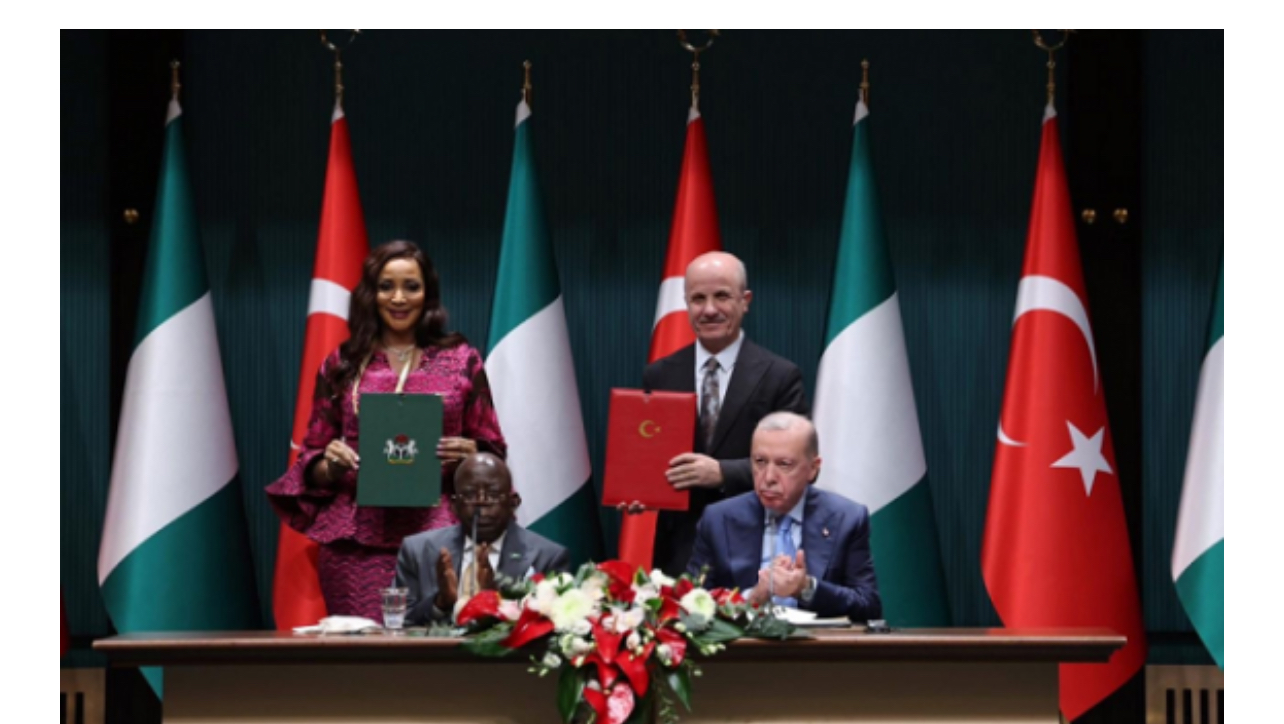
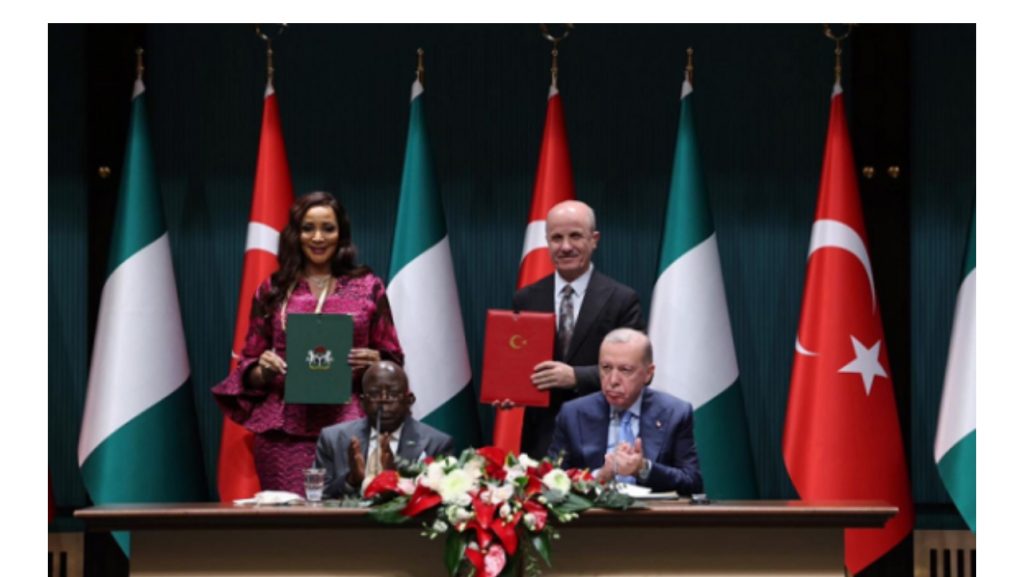 President Bola Tinubu says Nigeria and Türkiye have agreed to fast-track cooperation in trade, energy and defence to boost jobs, investment and shared prosperity.
President Bola Tinubu says Nigeria and Türkiye have agreed to fast-track cooperation in trade, energy and defence to boost jobs, investment and shared prosperity.
The President disclosed this on Tuesday via his official X handle during his ongoing State Visit to Ankara, Türkiye.
Tinubu said discussions with Turkish President Recep Tayyip Erdoğan focused on deepening bilateral relations and delivering tangible economic benefits for citizens of both countries.
“President Recep Tayyip Erdoğan and I reaffirmed our shared ambition, which speaks directly to jobs, investment and opportunity for our people,” the President said.
He said both leaders agreed on the need to expand trade volumes and remove structural barriers limiting business growth between Nigeria and Türkiye.
“We are creating a clear pathway to a five-billion-dollar trade volume between Nigeria and Türkiye,” Tinubu stated.
The President described the talks as practical and forward-looking, driven by mutual interests and shared regional and global responsibilities.
“Our conversations were practical and forward-looking: trade and investment, energy, education, defence cooperation, peace and security,” he said.
Tinubu announced the establishment of a Joint Economy and Trade Committee to drive implementation of agreements and attract fresh investments.
“The creation of a Joint Economy and Trade Committee will unlock new flows of capital,” the President noted.
He said the committee would also support industrial growth, technology transfer and stronger private sector participation.
Tinubu welcomed President Erdoğan’s acknowledgement of Nigeria’s ongoing reforms, especially in the energy and investment sectors.
“I welcome President Erdoğan’s recognition of Nigeria’s reform momentum, particularly in the energy sector,” he said.
The President said the renewed confidence reflected Nigeria’s commitment to transparency, stability and sustainable economic growth.
“We are determined to build an economy that works for everyone, including the most vulnerable,” Tinubu added.
On regional security, Tinubu reaffirmed Nigeria’s responsibility to promote peace and stability across Africa.
“Nigeria will continue to play its role in peace and stability in Africa,” the President said.
He said Türkiye’s expertise in counter-terrorism and defence cooperation would strengthen collective responses to emerging security threats.
“Türkiye’s experience and readiness to cooperate in training, intelligence sharing and counter-terrorism strengthen our resolve,” he stated.
Tinubu said nine bilateral agreements were exchanged at the end of the meetings between both leaders.
The agreements cover defence, education, media cooperation, diaspora policy, trade facilitation, social development and institutional collaboration.
“Nigeria remains open for serious partnership. Open to trade without barriers, ideas, skills and investment that create value and shared prosperity,” he said.
Tinubu reaffirmed Nigeria’s commitment to inclusive growth, peaceful coexistence and active global engagement.
“We are building an inclusive economy. We are strengthening peace. Nigeria will continue to engage the world with confidence and clarity,” Tinubu said.
news
Strengthening Cultural Leadership to Eliminate Violence Against Women and Girls
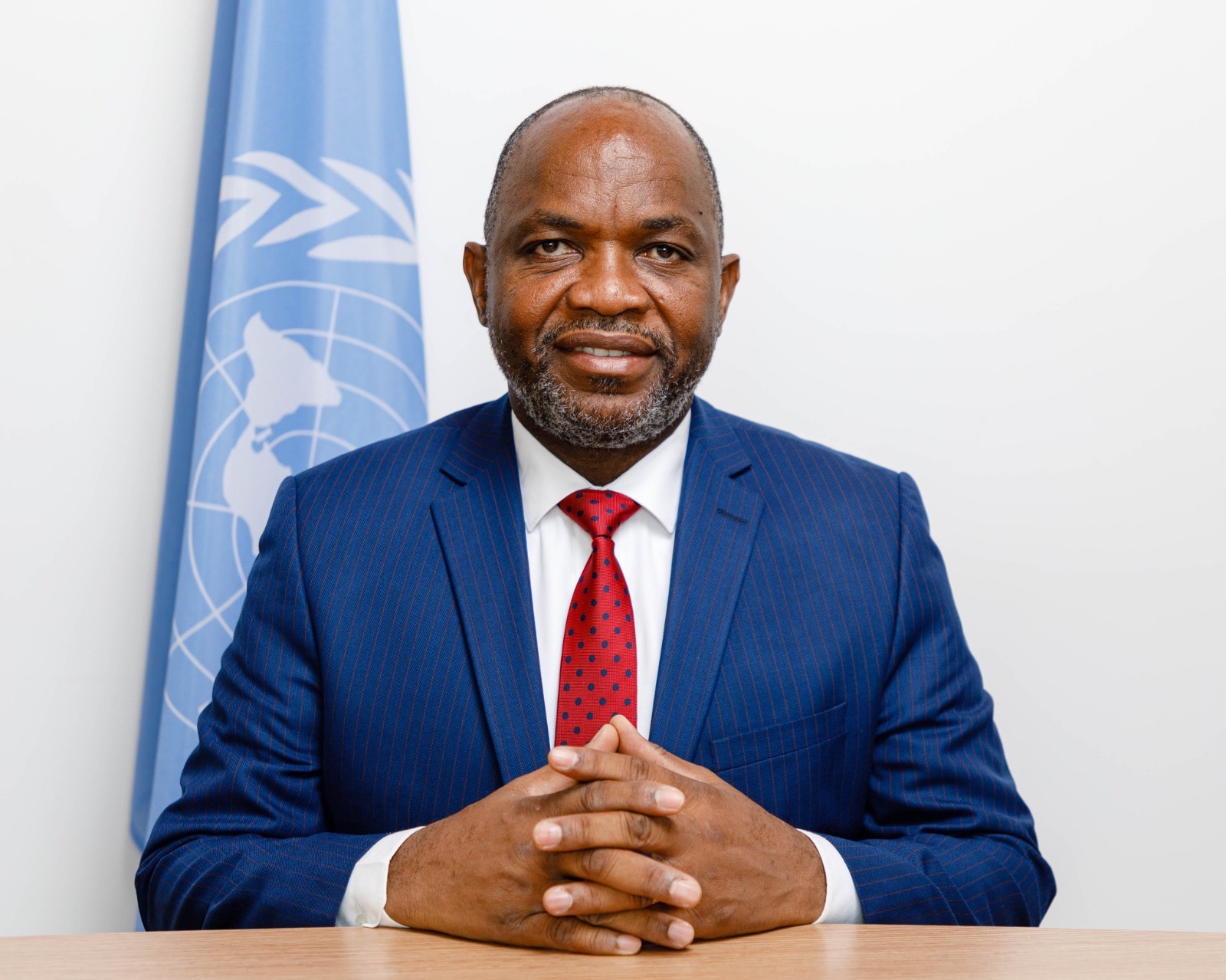
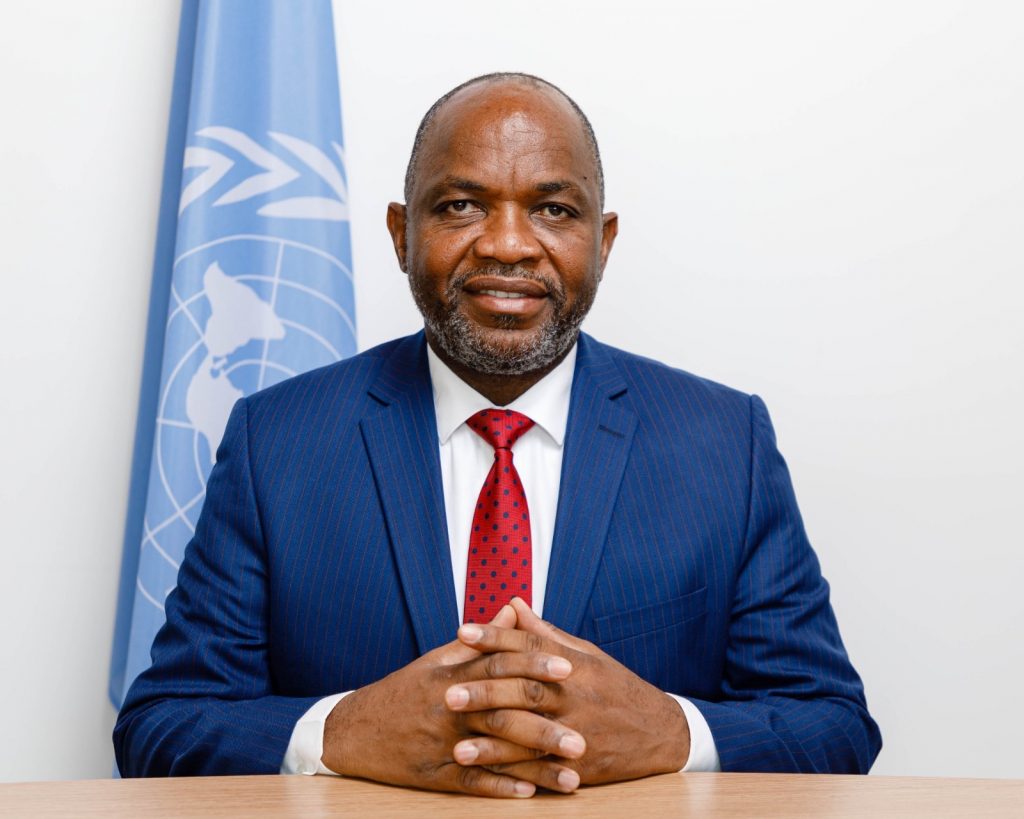
Op-Ed | By Maxime Houinato
As Africa stands at a crossroads in the fight against violence targeting women and girls, the continent’s traditional leaders hold a uniquely powerful key to unlocking lasting change. Their influence—rooted in culture, authority and community trust—positions them not just as custodians of heritage, but as essential partners in redefining norms, protecting rights and leading a continental shift toward safety, dignity and equality for every woman and girl.
In the coming week, traditional leaders from across Africa will meet in Lagos to explore how culture can advance dignity, safety, and equality. Their convening could not be timelier. Violence against women and girls remains widespread, underreported, and a major obstacle to achieving Agenda 2063 and the SDGs. Recent UN and WHO findings confirm that intimate partner and sexual violence persist at alarming levels, underscoring the need for strong, locally led prevention and accountability.
This important convening in Lagos is made possible through the valued support and partnership of the Ford Foundation, whose long-standing commitment to gender justice, human rights, and community-led solutions continues to strengthen efforts across Africa to end violence against women and girls.
Sub-Saharan Africa records some of the world’s highest rates of intimate partner violence, with studies showing that over 40% of women surveyed have experienced emotional, physical, or sexual abuse. Regional data platforms confirm that both lifetime and recent intimate partner violence remain alarmingly common. The effects also span generations: research across 37 African countries links mothers’ experiences of violence to higher risks of illness, undernutrition, and even death among children under five, highlighting IPV as a major threat to child survival and public health.
Where culture must evolve
Africa has made notable strides, yet harmful practices still put millions of girls at risk. West and Central Africa remain the global epicentre of child marriage: nearly 60 million women and girls in the region were married before 18, with Nigeria bearing the largest absolute numbers. These figures, drawn from UNICEF’s databases, remind us that while progress is possible, it is not guaranteed without sustained, community-anchored change.
There are bright spots. In Kenya, the latest Demographic and Health Survey shows FGM prevalence fell to about 15% in 2022, down from 21% in 2014, a testament to policy commitment and local norm change. Yet prevalence remains extremely high among several communities, and sustained vigilance is required to prevent medicalisation or cross-border practices.
Nigerian realities, African momentum
Nigeria mirrors the continental picture: national surveys and administrative data point to widespread physical, sexual and emotional violence, with thousands of cases reported to authorities each year, figures that almost certainly undercount the true burden. The Government’s National GBV Data Collation Tool is an important step toward standardising reporting and improving coordination; scaling it nationwide and linking it to survivor-centred services will save lives.
Encouragingly, the upcoming Conference of African Traditional Leaders in Lagos, already drawing commitments from eminent leaders, signals growing recognition that cultural authority can be mobilised to protect women and girls. UN Women’s work with traditional councils across Africa has shown that when custodians of culture publicly denounce harmful practices, backed by evidence and community dialogue, norms shift and laws gain legitimacy. It is why we helped catalyse platforms like the Council of Traditional Leaders of Africa to champion the abandonment of child marriage and FGM.
Law works best when culture leads
Africa’s legal architecture has advanced. The Maputo Protocol, our continental bill of women’s rights, has spurred reforms, and the African Commission recently moved to develop a Model Law to accelerate domestication and harmonisation across countries. These instruments matter: they provide standards, remedies and budgets. But their power is realised when interpreted through community values that affirm women’s dignity.
Evidence from the Spotlight Initiative, the EU-UN partnership with the African Union, shows that multi-sector, locally-led approaches can reduce harmful practices, strengthen services, and improve prevention. Traditional and religious leaders who champion public declarations, alternative rites of passage, and community bylaws help convert state law into lived practice.
A practical agenda for traditional leaders
I urge traditional leaders to make clear, practical commitments that have been proven to drive change: publicly and repeatedly denounce harmful practices such as child marriage, widowhood rites and FGM, backing declarations with community bylaws aligned with national law; promote survivor-centred justice in customary systems through strong referral pathways, bans on forced reconciliation, and proper case documentation; safeguard girls’ childhoods by ensuring birth and marriage registration, enforcing 18 as the minimum age of marriage, and supporting re-entry to school for married or parenting girls; encourage alternative rites of passage and positive models of masculinity that reject violence; and use their influence to push for stronger laws, adequate funding, and community engagement to address all forms of violence against women and girls.
Culture is not a relic; it is a living promise we renew with each generation. As guardians of that promise, Africa’s traditional leaders can be the champions of a continental transformation: from harmful silence to protective speech, from permissive norms to zero tolerance. If we act with urgency and unity, a life free from violence can become every African woman’s and girl’s lived reality.
Maxime Houinato is the UN Women Regional Director for West and Central Africa, providing strategic leadership across 24 countries to advance gender equality, strengthen women’s rights, and accelerate the elimination of violence against women and girls. In this role, he guides UN Women’s regional programmes on women’s economic empowerment, governance and political participation, humanitarian action, and the prevention and response to gender‑based violence.
news
Update : FG Outlaws Meter Installation Charges, Vows to Sanction Defaulters
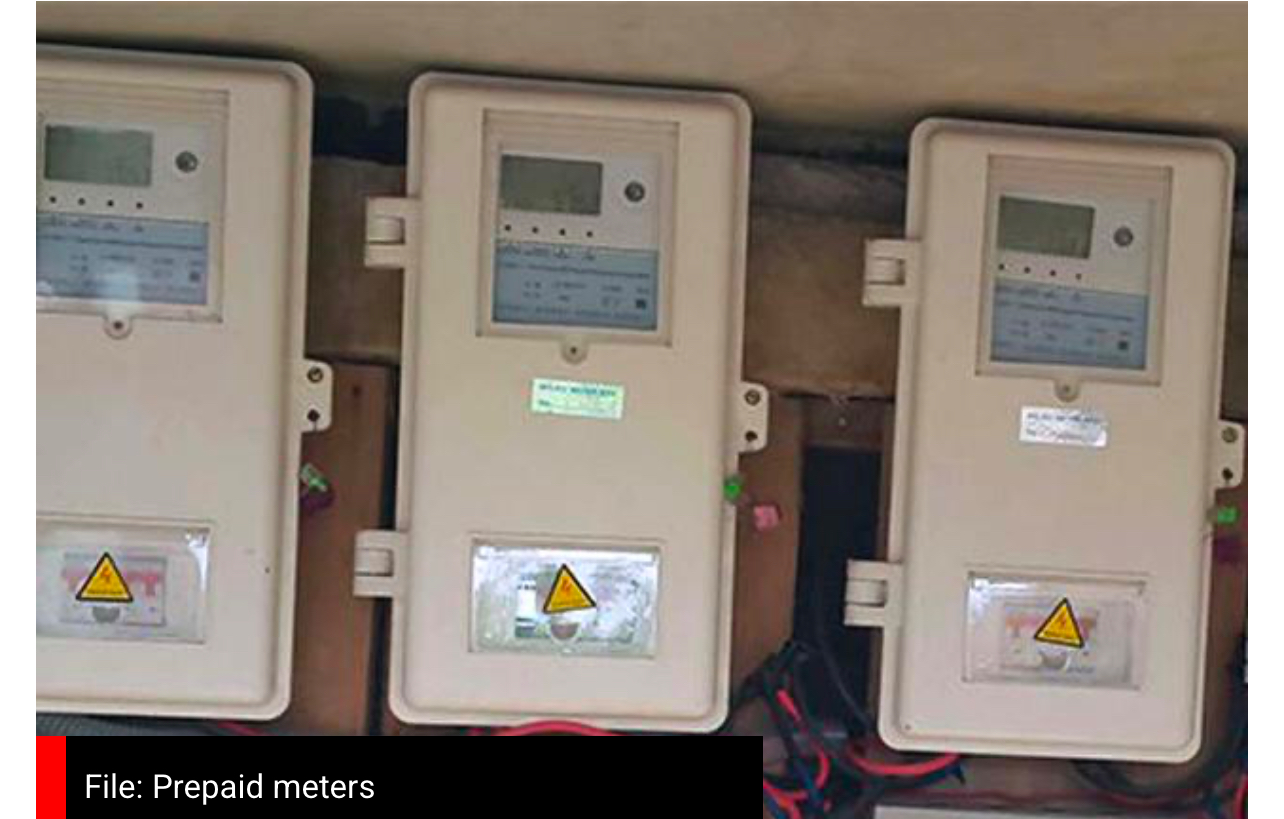

The Federal Government has banned electricity distribution companies and installers from collecting any form of payment for meters, warning that DisCo officials and installers found extorting customers will be prosecuted.
The Minister of Power, Adebayo Adelabu, issued the warning on Thursday during an on-site inspection of newly imported smart meters at APM Terminals, Apapa, Lagos.
Adelabu said the meters were procured under the World Bank–funded Distribution Sector Recovery Programme and must be installed for consumers free of charge, stressing that any demand for money would be treated as an offence.
Adelabu, who was received into the Apapa Port Command of the Nigerian Customs Service by Area Controller Emmanuel Oshoba, expressed happiness over the importation of another tranche of 500,000 smart meters under DISREP.
He said the meters would be given to all electricity customers, regardless of their band. “I want to mention that it is unprecedented that these meters are to be installed and distributed to consumers free of charge—free of charge! Nobody should collect money from any consumer. It is an illegality. It is an offence for the officials of distribution companies across Nigeria to request a dime before installation; even the indirect installers cannot ask consumers for a dime.
It has to be installed free of charge so that billings and collections will improve for the sector.
“The main objective of coming here today is to carry out a physical on-site inspection of shipments of smart meters that the Federal Government has imported under the World Bank-funded Distribution Sector Recovery Programme. This programme is supporting the Federal Government to import a total of about 3.4 million meters in two batches; the first batch is 1.43 million meters, out of which we have received close to about a million meters. Currently, almost 150,000 meters have already been installed across all distribution companies in the country.
“And what we have today is close to 500,000 meters that we just received. They are all smart meters, and I believe that the journey of completely eliminating the meter gap in the Nigerian power sector has just begun,” Adelabu said, even as he expressed dissatisfaction with the pace of metering.
Adelabu was optimistic that in a couple of years, every household, business, and institution would be fully metered so that billings and collections in the power sector would become more transparent, fair, and just. He added that it would also improve the readiness of electricity consumers to pay their bills, leading to improved liquidity in the sector.
“I’m quite excited and elated with what’s happening because it’s unprecedented. This is the first time in the history of this country that a government will be importing and locally buying this number of meters to ensure that the power sector is completely transformed. This is like walking the talk. Our target reform in the sector is not just verbal. Nigerians can see that this is real; it’s not just a promise of the tongue.
“We said it is free. We are not saying this behind closed doors. We are telling Nigerians that the distribution and installation of these meters in every location is free of charge, and it is declared an offence—an illegality—for any DisCo official or installer to request money from the beneficiaries of these meters. We will track and monitor this installation. We also await tip-offs. We have the regulatory commission (NERC), which has offices in some of these locations, and the state regulatory authorities also have offices in each state.
“We are going to open a customer complaint desk whereby, if you notice any such requests for illegal money, you report it, and the authorities will follow up. We are not leaving the installation to the DisCos alone; we’re also creating an interface between the installers and consumers to accelerate the pace of installation. We have some issues with the data and addresses of unmetered customers. We are working hand-in-hand with the DisCos to ensure clean data so that we can accelerate installation.
“We also want to maintain a register whereby unmetered customers can register their names. Once we have a list, we will validate it with the DisCos, improving the pace of installation. We are looking for confirmed cases of requests for money by any DisCo official or installer. Nigerians will know what we can do, and it will serve as a deterrent for others not to commit such an offence or illegality. That’s the plan.
“Extortion is not allowed, but there must be confirmed cases of such extortion, and the officials involved—no matter how high—will be prosecuted. It will be publicised and serve as a deterrent to others with similar intentions. We will not allow that. This is a government effort, and no activity of a DisCo or installer should frustrate government efforts to ensure that life is made easy for Nigerians and that we have a stable, reliable, and functional power sector,” he said.
Adelabu added that the Tinubu administration is resolving a decades-long problem that has affected liquidity. “But the boldness, courage, and political will of the government to go ahead with this should be commended. We will track it end-to-end to ensure that the government’s effort is well implemented and our desired objectives are achieved.
“The aggregate meter gap covers all categories of customers. We are not discriminating. We are prioritising every Nigerian, every customer, every electricity user. The issue of Band A, Band B, or Band C is temporary; it is our systematic way of ensuring this reform reaches everyone. The meters will be given to all levels of customers and not restricted to a single band. I am committing to that,” he stressed.
As journalists expressed doubts over the possibility of free meter distribution to customers, the Director-General of the Bureau of Public Enterprises, Ayo Gbeleyi, stated that the bureau coordinates the implementation of the Distribution Sector Recovery Programme on behalf of the Federal Government and serves on the boards of all 11 electricity distribution companies.
Gbeleyi said, “Regarding concerns that DisCos are delaying meter installations, you will soon see a new order or circular from the Nigerian Electricity Regulatory Commission prescribing the protocols and processes DisCos must follow to ensure unhindered access for meter installations.
“We are monitoring this. We have our dashboard, trackers, and all stakeholders’ hands on deck to ensure seamless and rapid deployment of these meters. One more thing—the meters here are manufactured to the specific requirements of each DisCo. They are inscribed on the meter, with an anti-theft protocol embedded. The configuration is for a particular DisCo, so a meter configured for Eko DisCo cannot be installed in Ibadan.”
Speaking, the Chairman of Mojec, Mojisola Abdul, said the meters supplied by the Federal Government are designed to genuinely generate more revenue for the country and supply more power.
“I’m telling you, physically, we have installed almost 150,000 meters, and they are free. Don’t give anybody money. You are not allowed. We had a meeting Wednesday with the minister and the DG of BPE about further progress on making it easy for every Nigerian. We are calling it mobile registration of free meters. If you register today, your meter will be installed within three days,” she said.
On the delay in meter installations after months of application and payments made, the minister reassured, “This is our country. It is valid that there will be apprehensions and reservations because of past experiences. Previously, there was limited meter availability, and payment was required.
“But this programme has two advantages: first, the volume is now sufficient—we have received almost 1 million meters, with another 1.55 million meters coming in the second phase. Second, the meters must be installed free of charge. The complications experienced in the past will be completely eliminated. We had a meeting on Wednesday for almost two to three hours to discuss all existing complications and foreseeable difficulties, and I assure you we already have effective solutions to all these problems.”
Adelabu also visited the National Meter Test Station in Oshodi, where meters are tested by the Nigerian Electricity Management Services Agency to ensure they meet required standards. Nigeria currently has over five million customers under estimated billing.
-

 news5 years ago
news5 years agoUPDATE: #ENDSARS: CCTV footage of Lekki shootings intact – Says Sanwo – Olu
-

 lifestyle6 years ago
lifestyle6 years agoFormer Miss World: Mixed reactions trail Agbani Darego’s looks
-

 health5 years ago
health5 years agoChairman Agege LG, Ganiyu Egunjobi Receives Covid-19 Vaccines
-

 lifestyle4 years ago
lifestyle4 years agoObateru: Celebrating a Quintessential PR Man at 60
-

 health6 years ago
health6 years agoUPDATE : Nigeria Records 790 new cases of COVID-19
-

 health6 years ago
health6 years agoBREAKING: Nigeria confirms 663 new cases of COVID-19
-

 entertainment1 year ago
entertainment1 year agoAshny Set for Valentine Special and new Album ‘ Femme Fatale’
-

 news8 months ago
news8 months agoBREAKING: Tinubu swears in new NNPCL Board


